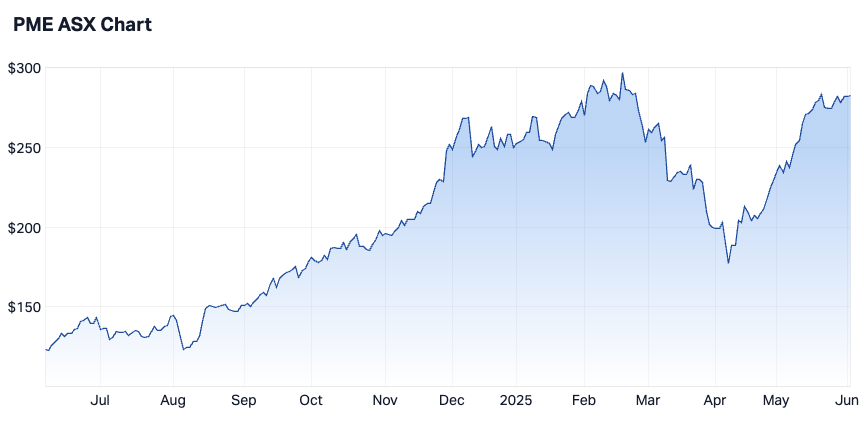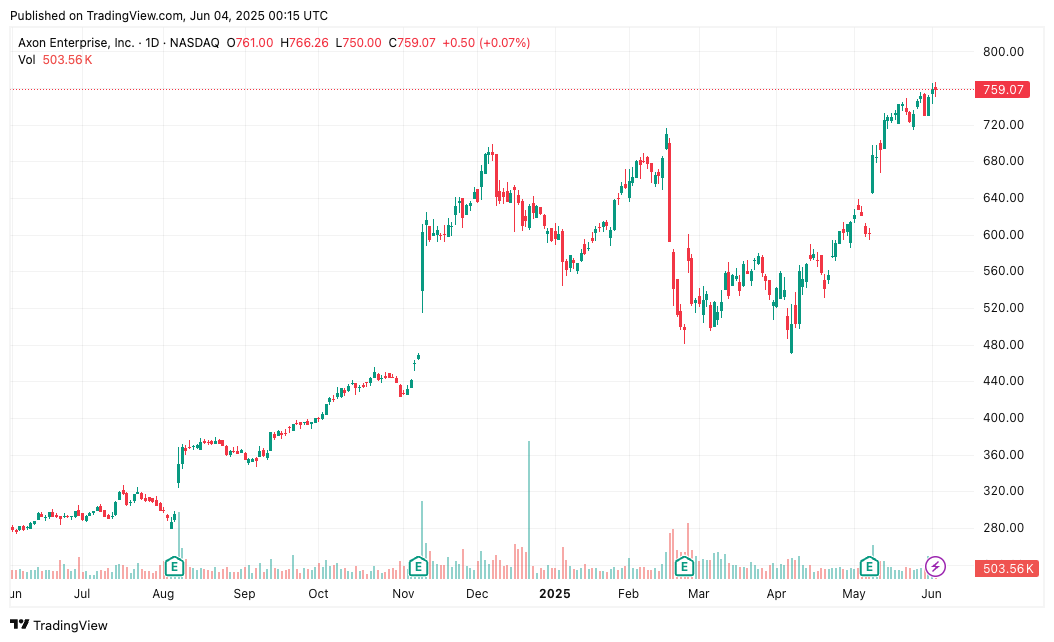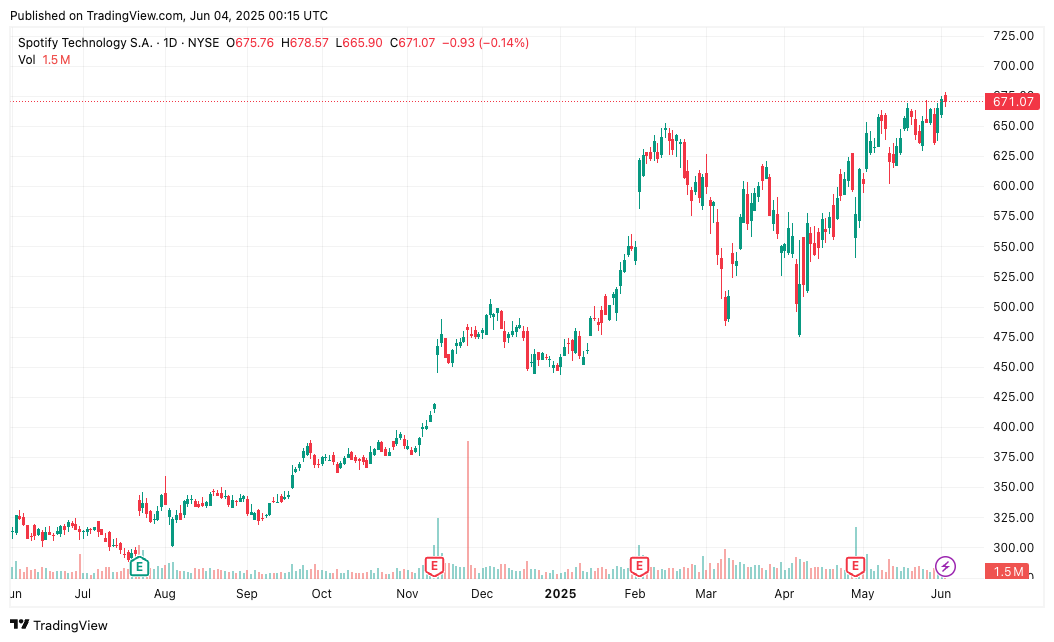4 stocks and 2 themes the pros are watching right now
For Livewire’s Growth series, we asked our guests one simple question: What’s your top growth pick right now?
Founder-led and large addressable markets, coupled with strong competitive advantages, are some of the characteristics firmly on the radar of Australia’s sharpest growth-focused minds.
From untapped market share in healthcare tech, to software-led innovation in policing, and the global dominance of audio streaming, these are the companies with serious momentum and long runways ahead of them.
ICYMI, we’ve pulled together the high-conviction picks from the series, plus key insights on where the next wave of growth could come from - whether it’s Europe’s unexpected resurgence or the long-term promise of AI.
Fun fact: all four companies listed below are still run by their founders. Coincidence? We’ll let you decide.
GROWTH STOCK PICKS
Pro Medicus (ASX: PME) - Dushko Bajic, First Sentier Investors

"We did a whole lot of work to show that their product could actually win market share in what we call the integrated delivery network market.
So the market was thinking potentially the stock had reached its peak, 50% market share. But in fact when you include the IDNs, it only had 3% market share five years ago."
For Bajic, Pro Medicus continues plugging into an untapped addressable market, with a founder at the helm who continues to drive the long-term interests of the business, and therefore, shareholders can only stand to benefit.
2. Axon Enterprise (NYSE: AXON) - Qiao Ma, Munro Partners

"Axon went from a 20% consistent growth company to a 25 to 30% growth company because of the software bundle. But the profit - since the software obviously is a higher margin business than the physical product of tasers and body cameras - the profits start to grow at 35 to 40%."
Axon developed the taser as a non-lethal option for law enforcement, and over time, expanded into adjacent products like body cameras and cloud-based video storage. The integration of AI has supercharged growth, says Ma, accelerating the earnings growth of an already very healthy growth company, that looks to continue for a long time.
3. Spotify (NYSE: SPOT) - Josh Cummings, Janus Henderson

"They've got nearly 700 million monthly active users, nearly half of whom pay for the premium non ad tier, which is really interesting because a lot of apps, the majority of the revenues actually driven by advertising, whereas 87, 88% of Spotify's revenue is driven by subscription."
Cummings sees the giant streaming company, not necessarily leveraged to advertising growth, and as the category leader in a total addressable market that is still immature and growing, with no real competition on the horizon.
Inventia Life Science - Hashan De Silva, KP Rx
“They’ve sold products to 50% of the top 20 pharma already… and each printer can generate US$12,000 to US$15,000 a day in consumables".
One of KP Rx’s high-conviction investments is in Inventia Life Science, a private Australian medical device company. Inventia has developed a 3D bioprinting technology to create realistic human tissue models. De Silva calls the tech "revolutionary" for drug discovery and its ability to be reproduced at scale.

GROWTH MARKETS
Pigs DO fly...
With the U.S. and Australia markets being the most expensive markets, Sebastian Mullins from Schroders Australia is looking beyond to emerging markets and Europe for the long term.
"Unleash animal spirits in Europe. And you joke, in the 2010s, we talked about the pigs, Portugal, Italy, Spain, you wouldn't want to touch them with a 10 foot pole, but now the pigs are flying, they're doing really, really well."
With the European Central Bank cutting rates and having borrowed very cheaply during 2020, they see a strong economic outlook.
The future of AI
Can we even talk about growth without discussing AI?
As Matthew Cho of Vanguard points out,
"Our view is that the excitement surrounding AI is warranted. However, we believe that the rapid adoption of AI might not take place as quickly as some others would expect...We won't really see the real uptick in productivity growth from AI until the late 2020s".
Cho also notes that the tech is still very much in its nascent stage - even the social attitudes towards AI are still evolving. However, Cho says they believe that in developed economies, around 30% of working hours will be replaced by AI automation in around 20 years' time.
3 stocks mentioned
7 contributors mentioned

.jpg)
.jpg)